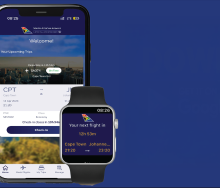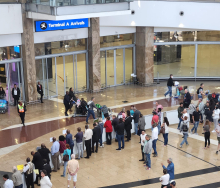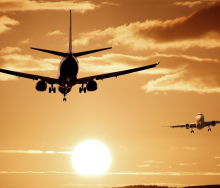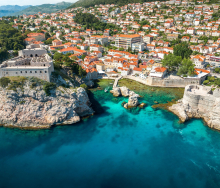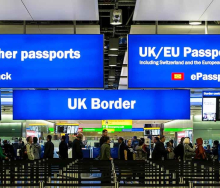South Africa’s new Minister of Tourism, Patricia de Lille, is making good on her promise to hit the ground running, meeting with industry leaders and the Department of Transport to dissect the major challenges within her new portfolio.
De Lille, along with new Minister of Transport Sindisiwe Chikunga, was present at the Barsa Aviation Summit in Cape Town on Friday, March 10, where she engaged with members of both the tourism and transport industries.
Collaboration with transport department
Oupa Pilane, SATSA Co-Chair, said the actions taken by the new Minister of Transport, and collaborations between her department and the Department of Tourism, would be integral to the success of the tourism industry.
“The Minister faces a huge task of revitalising the entire transport system, not only road, but air and rail amongst others,” said Pilane, pointing out the costs of a potholed road network on tour operators.
“Tour operators are incurring huge costs on tyre repairs due to potholes on most of our tourism routes. All provinces are negatively affected, although it can be said that the Western Cape is faring much better. Mpumalanga’s road infrastructure is probably in need of the most attention, especially after the heavy rainfall that has made conditions worse,” said Pilane.
The ongoing issues at the Department of Transport’s National Public Transport Regulator (NPTR), which is dealing with a backlog of tourist transport operating licences, is another critical obstacle that needs to be jointly addressed.
“The NPTR is low hanging fruit for the Minister and its challenges can be addressed by the stroke of a pen. The tourism industry has put forward proposals to the department which are practical and can address all the systematic challenges that relate to NPTR.
“SATSA will certainly make efforts to meet with the Minister to seek ways of putting this NPTR matter to rest,” said Pilane.
Following an NPTR workshop in Sandton on February 27, attended by more than 70 tour operators, the Tourism Business Council of South Africa (TBCSA), will be holding its next workshops in Cape Town on March 23 and Durban on March 24.
“These roadshows give the first practical opportunity for tour operators to come and meet in person with government and have the matters they have been complaining about for a very long time sorted out once and for all,” said TBCSA Board Member, Septi Bukula.
In an interview with Newzroom Afrika on Thursday, March 9, De Lille – who stated that she would ‘hit the ground running’ in her new role – acknowledged the importance of engagements with the Department of Transport on the NPTR issue.
“I need to engage with the Minister regarding the backlog of those licences and also see how I can put systems in place for how tourism can track these applications,” said De Lille, adding that she would be guided by the industry in overcoming the barriers to the sector.
“Give me a week and I will be able to give you a clear plan of action as to what we need to prioritise,” she said.
De Lille’s comments will provide encouragement to industry leaders such as Pilane, who said: “Our expectation of the Minister of Tourism is structured engagement with the tourism sector, especially when it comes to programmes and projects that will grow the tourism sector. We need a seat at the table.”
Airlift and cruise sector
Minister de Lille will also be expected to stimulate growth in the air transport and cruise sectors.
“There is no doubt that, without airlift, inbound tourism would collapse. Part of SATSA’s engagement with the Minister will focus on finding ways to increase air traffic, however, this should not be isolated from a discussion regarding e-visa challenges the country is experiencing,” said Pilane.
“The condition of our harbours and docking areas for cruise ships is challenging. We need to bolster the cruise sector which was negatively impacted by COVID-19.”
Other areas of focus
Industry has expressed hopes that De Lille will drive home the importance of the tourism sector for South Africa’s economy, and deal with what Pilane describes as a previous ‘lack of tenacity’ from the Tourism Department under former minister Lindiwe Sisulu.
“The current lack of tenacity demonstrated by the Department of Tourism is hindering other line departments from addressing tourism-related challenges. This has not only affected the tourism sector but the economy in general and its ability to create sustainable jobs.”
Dr Siyabulela Nyikana, Senior Lecturer at the University of Johannesburg’s School of Tourism and Hospitality, stressed the need for strengthened partnerships between the public and private sectors.
“In line with demands from the private sector, this is of critical importance. I think the new minister should look at ways to improve relations, and specifically tourism opportunities with the African market, especially through business tourism, which can be further enabled to grow through greater levels of air connectivity,” said Nyikana, also calling for better implementation of policy.
“The country has come up with many good policy or strategic documents that are aimed at guiding tourism’s development and management. So more than focusing on a specific policy/or regulatory process, there should be short-, medium- and long-term targets set, and specific outcomes to evaluate the progress in achieving these targets. So constant monitoring and evaluation of existing processes is key.”


